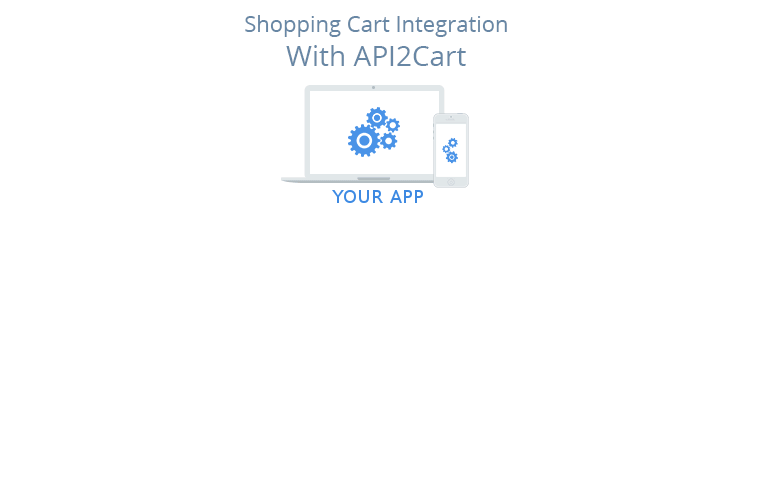
APIs are among the most important concepts in integration in the digital environment. They help in the transfer of information by linking applications and platforms. APIs are helpful to developers because they allow them to incorporate many features of other systems in their applications while not necessarily understanding how the other systems work.
One cannot overemphasize the significance of APIs in integration particularly because of the current developments in the eCommerce. APIs are useful in the communication between software applications and eCommerce platforms. Due to them, even beginners can manage the synchronization of data and other functions across various platforms. Therefore, whether it is about managing products and orders or handling customers, APIs are very useful in organizing activities and accomplishing objectives in the digital market.
Understanding APIs
APIs (Application Programming Interfaces) are the methods by which two or more applications can communicate to accomplish a specific task. In its basic sense, an API can be defined as a protocol that defines how two or more software applications should interact. APIs are a way of allowing access to the functionality of a system without exposing the details of how it is implemented through interfaces that can be easily integrated into applications to get data, accomplish tasks, or enhance the user experience.
APIs are of different categories based on the purpose for which they are created and the environment in which they are created. For instance, the architecture of RESTful APIs has principles such as simplicity, scalability, and statelessness. These are HTTP verbs like GET, POST, PUT, and DELETE that are used to manipulate resources hence they are widely used in web applications. On the other hand, SOAP APIs that are based on XML messaging protocols are very structured and are suitable for enterprise application integration since they offer security and transactional reliability. These differences make the developers to have a choice of the best type of API to use for their application depending on the needs of the project in order to achieve the required efficiency and integration.
Also, APIs are essential in the present world since they assist in creating new applications and services in different sectors.

What are eCommerce APIs?
eCommerce APIs are the building blocks of the modern eCommerce industry. They assist in the connection and communication between online stores, marketplaces, and other applications. These APIs offer a well-defined way of interacting with eCommerce data which includes products, customers, orders, shipments, and payments. These functionalities, which are provided through clearly specified endpoints, allow developers to create their own applications, improve their business processes, and improve their customers' experience across various touchpoints.
Also, eCommerce APIs enable the formation of sustainable ecosystems in which developers, merchants, and service providers can build and collaborate, which in turn affects the retail industry and other sectors.
Examples of APIs in eCommerce
- Shopify API: Shopify is among the most popular eCommerce platforms in use today. Basically, it offers a vast number of APIs that help the developers to manage different features of the Shopify store. The information that can be retrieved includes products, orders, customers, payment methods, and shipping services.
- WooCommerce API: WooCommerce is the most popular eCommerce plugin for WordPress which is used to create online stores. It has a RESTful API that can be used to connect with WordPress-based eCommerce websites. The WooCommerce API is used to set and get store data like products, orders, customers, coupons, etc. So, this API is beneficial for the creation of new custom applications, connecting with other systems, and extending the capabilities of WooCommerce-based stores.
- BigCommerce API: BigCommerce has a very robust API that can be used to link other software solutions with it and extend its functionality. The API provides the read, create, update, and delete operations on store data, including products, orders, customers, and categories. It also has OAuth for authentication of connection and also supports webhooks for receiving real-time notifications.
- Magento API: Magento is an open-source eCommerce application with rich API that helps the developers to interact with the Magento stores. The API employs REST and SOAP to allow an application to communicate with the eCommerce store and its various resources and operations, including products, customers, orders, and payments.
From the above examples, it is clear that the eCommerce APIs are very essential in improving the features of the eCommerce software. They allow developers to design special applications for online merchants.

How APIs Enhance eCommerce Software Functionality
With the help of API integration with shopping carts like Shopify, WooCommerce, BigCommerce, and Magento provides access to store data. Basically, eCommerce software can use this data to perform various operations. These operations improve the user experience and make online stores more effective. This includes functionalities, such as product management, order management, payment management, and inventory management in real-time across multiple touch points. Below are some examples of eCommerce applications that depend on API integration with eCommerce platforms:
1. Marketing automation software
It helps e-merchants send emails at specific times. They can remind customers about abandoned carts and offer discounts or coupons. Also, it keeps customers informed about shipping details. The main functions of marketing automation software rely on data about products, orders, customer contacts, and coupons. Shopping platforms usually store this data in their databases. Data from online stores is applied in almost all the functions that are executed in marketing automation software. Thus, it will not be possible to send emails with new items, discounts, and special prices to the users of online stores or to inform them about the order status if there is no eCommerce integration.
2. Multichannel software
It enables e-merchants to control communication with customers through several online sales channels. In particular, it allows businesses to manage and control many processes from one place. These include inventory and order management, shipping, and product listing synchronization across different channels. For such systems, full compatibility with eCommerce platforms is crucial. It helps them to obtain information on products, orders, shipments, inventory, etc., structure it into data feeds, and distribute it across all channels.
3. Repricing and price optimization tools
They help online merchants to generate more revenue. They track competitors' offers and depict how these offers evolve with time to assist merchants in setting the right price in order to compete effectively in the market. E-merchants use different eCommerce platforms to run their stores. Because of this, it is essential to collect information about the products, their prices, categories, and features from multiple shopping platforms.

Benefits and Challenges of API Integration with eCommerce Platforms
Software solutions can leverage API integration for growth and innovation in the competitive eCommerce environment. Connection with eCommerce platforms provides the following benefits:
- Expanding Your Customer Base. Connecting with shopping platforms such as Shopify, Magento, WooCommerce, BigCommerce, PrestaShop, and OpenCart gives access to thousands of merchants who use these platforms.
- Comprehensive Data Management. eCommerce integration allows your solution to retrieve and manage all needed store data. This data includes orders, customers, products, shipments, baskets, categories, taxes, etc.
- Adopting and Proposing New Functionality. It is crucial to connect with different shopping platforms to be able to adapt and provide new features to the customers, thus increasing their satisfaction.
- Increasing Profits. More customers mean more revenue for your business, which in turn means that you can increase your profits by increasing your market share and offering better services.
For beginners, developing API integration with eCommerce platforms may be quite difficult. If you are considering developing a shopping cart integration on your own, consider the following issues you may face:
1. High Costs
The integration with each of the shopping platforms can cost thousands of dollars.
2. Time-Consuming Process
One integration process takes about a month to complete. SaaS app providers require many integrations. However, However, you can’t spend time developing and testing each one separately. This process takes too much time and money. During the delay, you risk losing many clients.
3. Maintenance and Upgrades
It is difficult to work with platform upgrades. You may lose some data or get wrong data and you have to spend much time in modifying your own code.
4. API Complications
There are issues with some shopping platform APIs. For instance, Amazon's API is not up to date and the documentation of the API is quite complicated. Magento's API integration is also challenging because its documentation is not very accurate. The documentation of Etsy's API is insufficient and the API can behave unexpectedly at times, which takes more time to develop and debug.
5. Need for Skilled Developers
It is challenging to find developers who have the right skills and experience for eCommerce integration because the process involves complex technical details.
6. Security Risks
Manual development of integration can cause severe security issues for your system. Poor connections can create a backdoor through which malicious users may gain access to your software and steal data.
Solution to Simplifying eCommerce Integration
API2Cart is an effective tool for solving various problems related to eCommerce integration. It provides a unified way to integrate with various popular shopping platforms and marketplaces. The service offers 100+ API methods for managing and retrieving data from different source channels with ease.
API2Cart allows software solutions to integrate with over 60 eCommerce platforms like Shopify, WooCommerce, Magento, BigCommerce, etc. This range helps the software expand its market share and client base.

Setting up an integration with APIs for beginners may be especially challenging. API2Cart helps reduce the time developers spend on the development process and minimizes the problems they face when integrating with multiple APIs. It can be helpful for the developers to manage the product information, stock, orders and customers' data of the eCommerce platforms.
Also, API2Cart helps overcome the scalability problem since it provides a powerful base and controls a large number of API calls. Thus, companies can broaden their activities. They do not need to worry about the fact that data transfer between their eCommerce software and other platforms will be slow or simply impossible.
API2Cart is a complete solution for eCommerce integration. It helps companies optimize their business and improve customer satisfaction. As a result, it increases profitability in the eCommerce field. API2Cart allows the focus on core business and strategic development while taking on all integration issues.
Conclusion
In summary, API integration enables eCommerce software solutions to automate various business processes, achieve flexibility in operations, and manage different aspects of eCommerce data. By using API-oriented approaches like API2Cart, software can avoid common integration issues. Also, this method unlocks new opportunities for development. It helps businesses stay competitive in the fast-changing and growing world of eCommerce.



